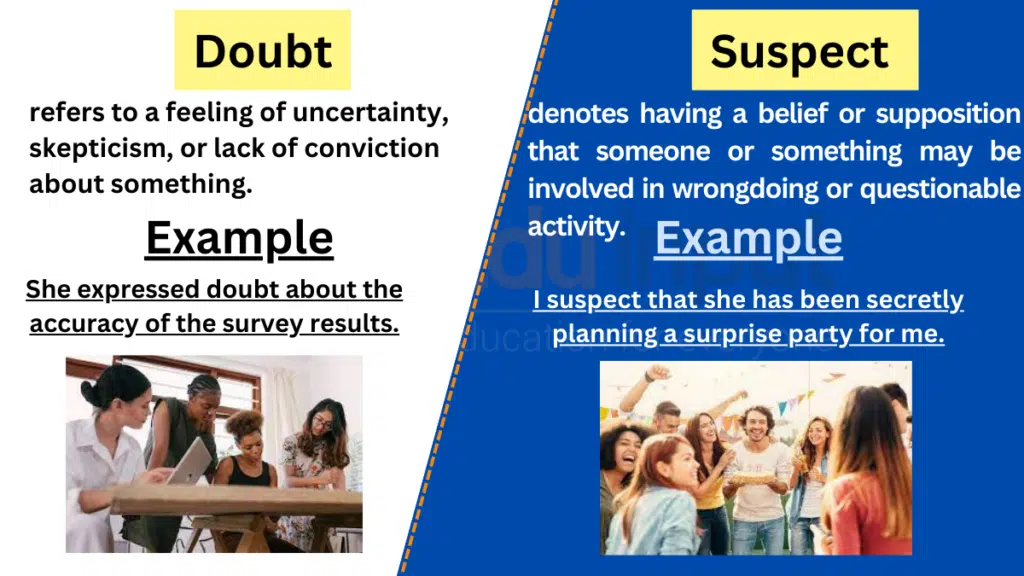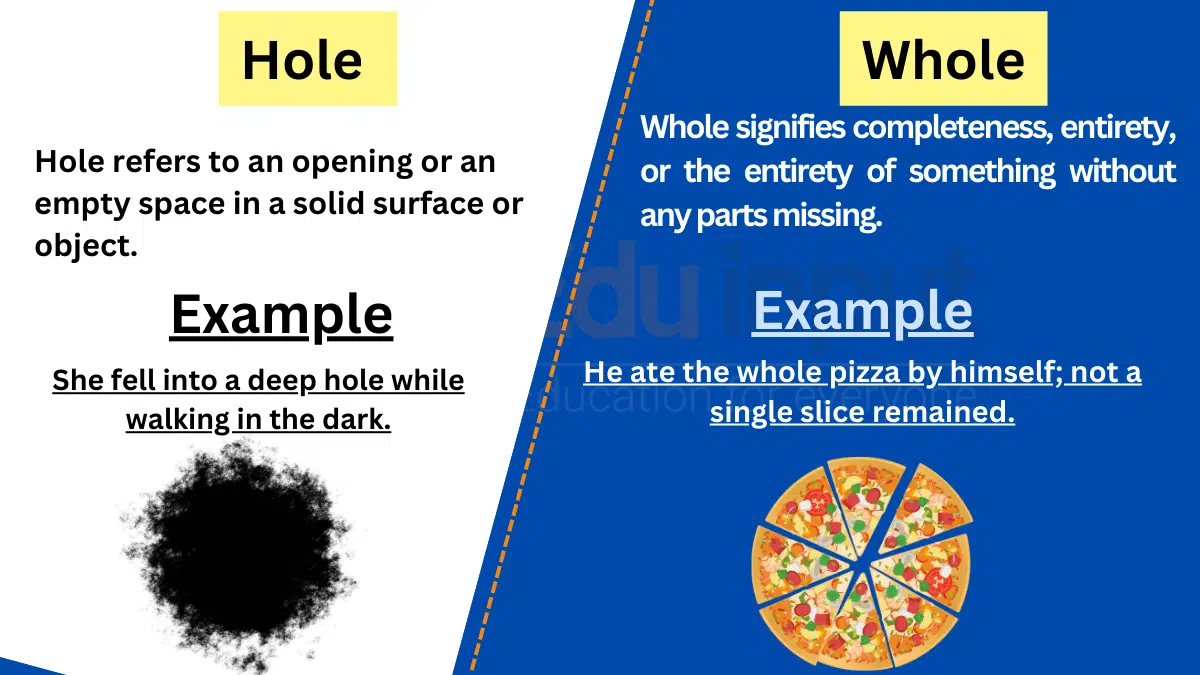Doubt vs. Suspect-Difference between and Examples
In the English language, certain words may appear synonymous but carry distinct meanings and usage. “Doubt” and “suspect” are two such words that often lead to confusion. Although they both involve uncertainty or skepticism, they are employed in different contexts and convey different levels of conviction. This article aims to elucidate the disparities between “doubt” and “suspect” by providing clear definitions, examples, and comparative analysis. By exploring their meanings and usage in various scenarios, we can better comprehend the nuances between these two terms.

Meanings and Examples
Doubt meaning
It is a noun or verb. The meaning of Doubt refers to a feeling of uncertainty, skepticism, or lack of conviction about something.
Doubt Examples
a) She expressed doubt about the accuracy of the survey results.
b) I doubt whether we will reach our destination on time due to the heavy traffic.
c) His remarks left me with lingering doubts about his intentions.
Suspect meaning
It is a verb or noun. The meaning of suspect denotes having a belief or supposition that someone or something may be involved in wrongdoing or questionable activity.
Suspect Examples
a) The police suspect him of being involved in the theft.
b) I suspect that she has been secretly planning a surprise party for me.
c) The detective gathered evidence to support her suspicions about the suspect.
Difference between Doubt and Suspect
| Doubt | Suspect | |
| Noun | A feeling of uncertainty or skepticism | A person believed to be involved in a wrongdoing |
| Verb | To be uncertain or skeptical about something | To believe or suppose someone or something is involved |
| Example | She expressed doubt about the accuracy of the survey results | The police suspect him of being involved in the theft |
| Grammar | Noun or verb | Verb or noun |
Usage in a Paragraph
As she read the news article, she couldn’t help but doubt its authenticity. The lack of credible sources and conflicting information cast doubt on the article’s credibility. On the other hand, the detective began to suspect the neighbor’s involvement in the recent burglary. After gathering evidence and observing suspicious behavior, she had reasonable grounds to suspect him. The doubt in the article’s reliability and the detective’s suspicion towards the neighbor exemplify the distinction between doubt and suspect.
Distinguishing between “doubt” and “suspect” is crucial for effective communication and comprehension. “Doubt” revolves around uncertainty or skepticism, while “suspect” entails having a belief or supposition of someone’s involvement in wrongdoing. By using these terms appropriately, we can express our level of uncertainty or suspicion accurately and avoid confusion in our conversations and written expressions.






Leave a Reply